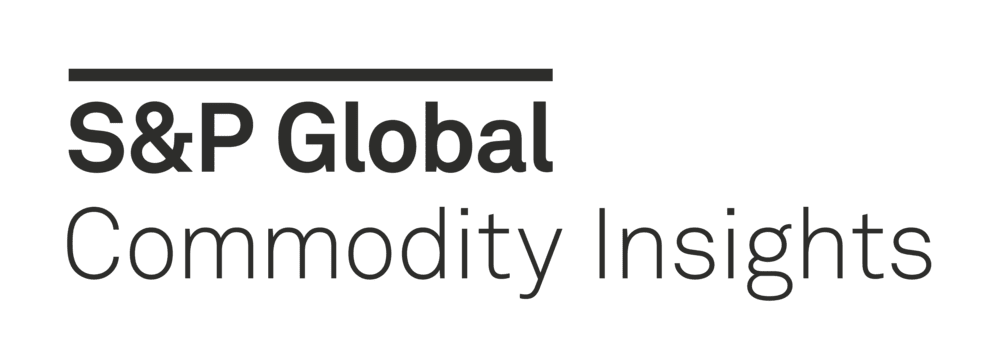Featured Topics
Featured Products
Events
S&P Global Offerings
Featured Topics
Featured Products
Events
S&P Global Offerings
Featured Topics
Featured Products
Events
S&P Global Offerings
Featured Topics
Featured Products
Events
Our Methodology
Methodology & Participation
Reference Tools
S&P Global
S&P Global Offerings
S&P Global
Our Methodology
Methodology & Participation
Reference Tools
S&P Global
S&P Global Offerings
S&P Global
20 Jun 2023 | 09:27 UTC — Insight Blog

Featuring S&P Global Energy
Bangladesh is gearing up for a boost in crude oil imports with a new mooring facility, while Asia benzene market is seeing a slowdown in demand. Steel mills in Turkey await an interest rate decision this week amid thinning margins. In agriculture, S&P Global Energy editor focus on China's MSG exports and the price difference between animal-based and alternative meat products.
What's happening? Bangladesh has installed its first single-point mooring system in the Bay of Bengal. Prior to the SPM installation, Bangladesh Petroleum Corp. had to use multiple small vessels to unload imported crude and oil products from large tankers anchored in deep-sea areas and move them to the state-run refiner's Chattogram storage tanks. The process used to take up to seven days to completely offload oil from a large mother tanker.
What's next? With the new facility set to bolster logistical capacity and efficiency, Bangladesh is poised to increase Middle Eastern crude imports and diesel trades. BPC said it has already made additional Arab Light crude imports this month on expectations that the SPM facility would speed up the offloading and discharging process from late-June. The SPM system would allow BPC to offload around 900,000 barrels of crude oil within 48 hours and 600,000 barrels of diesel within 28 hours.
What's happening? The spread between Turkey steel rebar exports and ferrous scrap imports has narrowed to around $180-$185/mt when accounting for iron content. This level was last seen in early March 2022. Turkish mills are struggling to compete with cheaper steel prices from alternative regions such as Algeria, Egypt and the UAE, while scrap prices have remained relatively supported amid lower scrap collection rates in key export regions. The situation was exacerbated by Turkish lira's weakness, which worsened mills' purchasing power, while simultaneously failing to improve export competitiveness to incentivize steel bookings. Relatively high scrap prices further reduced steel margins after adjusting for iron yields and processing costs.
What's next? Turkish steelmakers have been more reliant on the domestic rebar market, and demand is expected to improve following a key interest rate announcement expected to be delivered on June 22. Market participants expect the decision to provide clarity on Turkey's macroeconomic policy and support investments, while helping to stabilize the Turkish lira. The London Metal Exchange scrap forward curve was largely flat at $385/mt for the June-September period as near-term price sentiment was unclear, while the Turkish rebar forward curve priced in a slight backwardation over the same period.
What's happening? Demand erosion across benzene derivative products underpinned by a slow consumer market has dampened end-users' interest to replenish feedstocks. The FOB Korea benzene physical marker touched a six-month low at $749.33/mt on June 13. June is a historically strong month for Asian benzene exports, as it marks the start of the summer driving season in the US. Benzene stockpile in East China declined for the first time in nearly six months to below 200,000 mt mark but that barely enticed any traders to restock.
What's next? The US would be closing its doors to the last batch of arbitrage benzene barrels from Asia when the summer driving season ends in the third quarter. Volumes heading to the US Gulf Coast could be minimal, filling only a sporadic demand. Expansion plans on benzene and benzene downstream units among integrated producers in China are in the pipeline, with some slated to come online by Q3, an unfavorable development to any participants currently holding on to benzene supply.
What's happening? Export prices of China's monosodium glutamate have fallen 10% year-on-year due to strong supply amid intense domestic competition. Despite increased exports from Asia and Africa, domestic consumption has seen slow growth as the "unhealthy" impression of MSG has made large proportions of younger urban consumers limit their consumption. Exports to the US and EU have also been limited due to anti-dumping measures in recent years.
What's next? Prices are expected to soften further in Q2, which can enable higher imports from Asia and Africa. However strong domestic supply will continue to put pressure on prices. The average annual growth rate of domestic consumption between 2021 and 2026 is forecasted to shrink to 1.6%, as domestic direct-to-consumer sales stagnate.
What's happening? Plant-based meats are reaching price parity with conventional meats in France, as high inflation continues to impact the prices of animal-based meats, according to market research institute Xerfi. Meat alternative prices fell despite overall food price inflation, due to increased economies of scale and the compression of margins. Between 2020-2023, Beyond Meat's burger prices fell 40%, while S&P Global Commodity Insight's price for French minced beef steak rose 41%, with the two approaching price parity.
What's next? Beyond Meat is apparently on track to achieve its commitment of having at least one product at price parity with animal meat by 2024, with other suppliers likely in a similar position. Price parity between conventional and plant-based meats will drive consumption of plant-based meat, as many consumers are either unwilling or unable to bridge the existing price gap between the two.
Learn more: S&P Global Energy Agribusiness
Reporting by Phil Vahn, Sue Koh, Abdi Salad, Mark Chooi Kim Weng, Eugene Ong